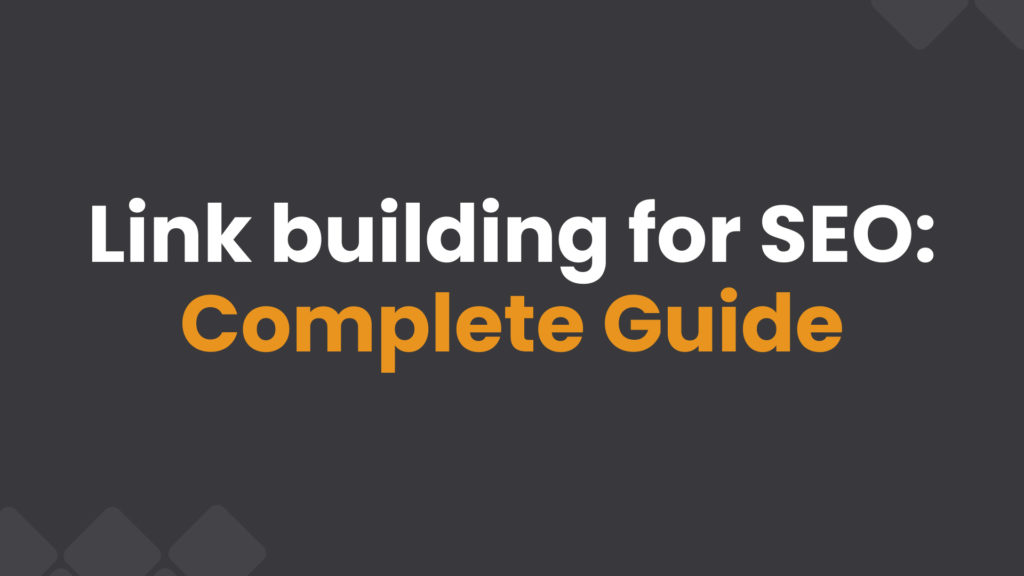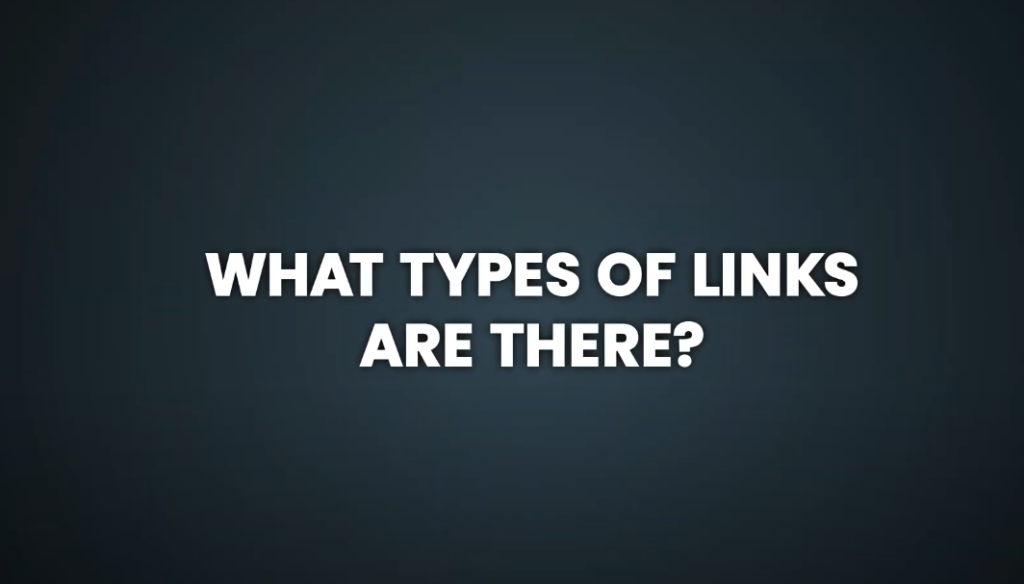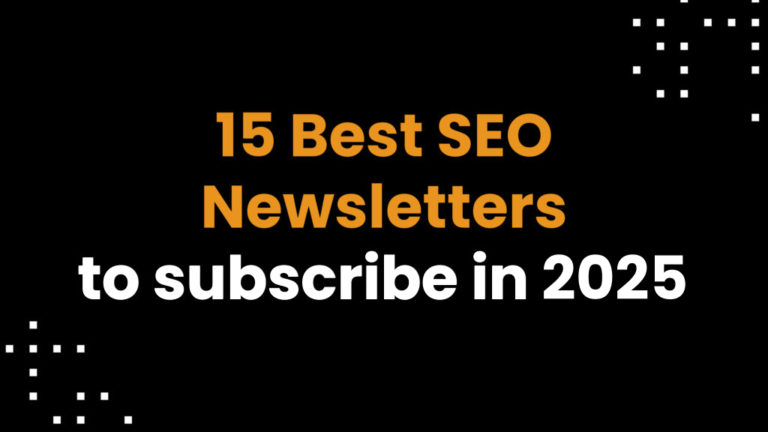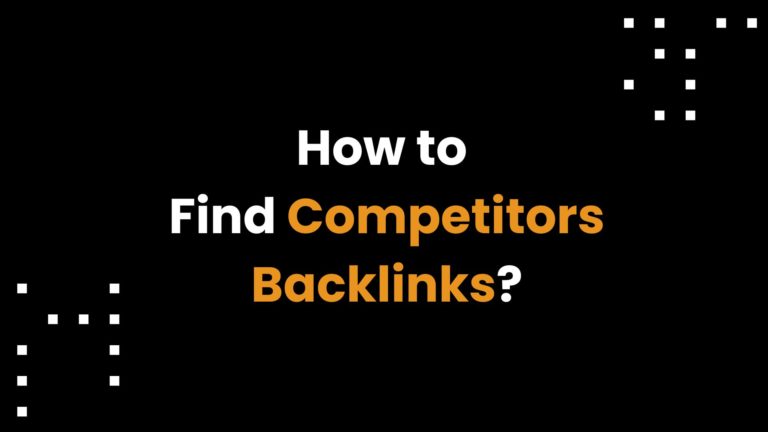What is link building? This term refers to the process of getting other websites to link to your website. Through this, you can acquire additional SEO power from authoritative sites, therefore improving your ranks in SERPs and, thus, enhancing your website’s visibility and digital PR online.
In this article, we will explore what exactly link building is, how you can use it in your business to improve your search engine rankings, and how to drive traffic back to your site. Let’s start!
What Is Link Building and Why Should You Use It in Your Business?
Link building is an extensive process of getting links from other websites to your own website. The purpose of this activity is clear: getting the highest search engine ranking possible with quality links from authoritative sources. It can be achieved in various ways, like by reaching the media, bloggers and journalists, or by optimizing the website for search engines (SEO). Even though link building is time-consuming, it is one of the essential elements of every SEO strategy. For this reason, it is worth focusing on its operation before you apply it in your business.
Why are links important and why do we focus on using them at all? Because these seemingly irrelevant links tell Google’s browser that users like your website. They also indicate that the content shared is both essential and valuable for any recipient looking for information online on a given topic. The more links from high-quality websites, the higher your site’s position in search results (SERP) and the better Google is at the positioning.
Link building is a profitable activity due to the changing algorithms in search engines for websites, which consider the quantitative number of references and, more importantly, their quality. It is worth noting that during link building, you should focus more on the latter factor because inbound links from better-quality websites give Google a more robust signal about a given page. As a result, the browser perceives them better.
Moreover, we distinguish external links from external sources and internal ones. In turn, you can use them when creating new content by directing it to your own website using various subpages or articles. Another important division is characterized by dofollow and nofollow links – you can read more in our article about backlinks.

The SEO Benefits of Using Link Building Strategies for Your Online Marketing
# 1 Links are one of the most critical factors in determining your search engine positioning
Links have a great influence on determining your position in search engines. In fact, link building strategy is crucial for SEO, as backlinks are among the top ranking factors for Google. This means that if you want to improve your website ranking, you need to focus on getting high-quality links from reputable sites. And the more links pointing to your website, the higher you can get in search engines.
Link building can be done on any budget, but there are many ways to do it without spending money. A great example is guest posts published on selected servers for free. However, by spending money, you can accelerate the process, for instance, by buying links quickly from a link building marketplace like Linkhouse.
# 2 Link building is a great way to reach more potential customers with your website
If you want to expand your customer base, link building is a great way to make your website appear in the minds of a new audience. But that’s not all, because it’s also a brilliant method of attracting traffic.
Pages at the top of search engines are somewhat privileged because people now more than ever are more likely to click on links that immediately appear high in the results. Users are pleased that they do not have to scroll down the page and that the browser in question quickly displayed the expected results. Once you know this, you can use link building strategies like SEO or reach campaigns to rank high for relevant keywords and drive traffic from your Google searches. You then increase the likelihood of attracting waves of new audiences.
# 3 A link building campaign can increase traffic and improve the visibility of your website on the web
Links are also a great way to drive traffic back to your site. When someone clicks on one of them, they will be taken to the page you refer to. If it is exciting and useful, there is a good chance that the visitor will stick to it or explore your resources further. This can improve the website’s conversion rate and help increase your income. So if you have the opportunity, use the power of your content – browse the blog, reread the articles, visit the FAQ section. However, after in-depth analysis, you will realize that you have a lot of room for improvement in internal linking.
# 4 Link building is cheaper than many other promotion methods
Link building is a relatively cheap way to promote your website. As we mentioned, it can even be free! So, if you are focused on savings and try to allocate your budget carefully, focus your activities on link building. However, if you have cash in reserve, you can start by giving a small amount of money to do so, and the chances are high that your efforts will pay off. These are bold words, but this method is not about channeling enormous resources into getting links from every existing site. Better less and more effective, right?
It all means that you can grow your business without spending a lot of money and even small businesses with tight expenses can create their own link building strategy.

Different types of link building techniques
1. One way to build links is to create valuable content that people will want to share and direct to.
Of course, there is no shortage of poor-quality websites, blogs, guides, etc. Each of them covers a given issue in length and breadth, but does the recipient get anything from this content? Since you want to avoid such an opinion about your website, only create reliable and helpful content from the user’s point of view. For example, create statements, reviews, reports, and tutorials. Also, use graphics and statistics to make your message more attractive and make others want to link to your web pages.
2. Another way to build high-quality links is by writing guest posts on reputable sites in your niche.
Do the research and plan your activities. Target blogs that are popular and your audience enjoys reading them and, therefore, generate a lot of traffic. A website cannot be in direct competition, but if it promotes things that are closely related to yours, you can use its potential. It is worth preparing for this process and personalizing the message appropriately to not look too artificial and bring about undesirable effects. Moreover, working on searching for a solid place where you can leave your guest post is essential. And the more engaging your website, the more audiences will follow you.
You can also opt for a different method and buy guest posting from us. This way, we will prepare everything for you: from the process of getting other websites to post the article, to writing and publishing it.
3. You can also reach bloggers and other website owners to propose, for example, a link exchange.
This method can also be a good source of linking for your website. From the very beginning, you offer something in return, so it is not a one-sided favor but cooperation – a link for link exchange. It is an attractive option for both parties because each of them benefits from this solution – it builds brand awareness and acquires new links based on interaction.
For example, some bloggers who personally create posts do not have time to make new content. Then, you can come to their aid by additionally updating their entry or adding a recent article that links to your resources by no means accidental. Indeed, more than one website owner will be tempted by such a solution – especially if you then do this the other way around for different subpages and link back.
4. Event sponsorship and various donations of products or services can also help you build links.
How about event sponsorship and charity work? It may not be the first solution that comes to mind when you think about link building, but why not? Indeed, you have seen the phrase “XYZ is the sponsor of the action” more than once. You can also use this method of getting new links. Just add a link to your website to the message and you’ll have another reason to smile as users start clicking.
5. You can use HARO (Help a Reporter Out) tools to get links from your news history and other authoritative sources.
Link building tools and automation are widely available, and sometimes they do even better than humans. It is worth taking them into account when working because of their reliability, intuitiveness, as well as saving time and effort of employees. One of such tools is HARO, a platform for creating high-quality links. It’s a free service that provides you with a solid base of sources for various articles. It helps journalists and editors worldwide connect with people who are industry experts. This way, everyone who registers can find helpful information without manually searching it.
When you register with HARO, you will receive a certain number of e-mails. When answering them, construct a very thoughtful and elaborate answer. In this way, you create the possibility of obtaining another link because interested people will be more likely to quote you in their materials.
6. Links to social media do not hide their potential for link building on various websites.
Social media is all about building relationships, and it would be a shame to miss an opportunity to connect with people there. They are a great distribution channel and generate many opinions and referrals due to their vast popularity. However, just being on social media is not enough for link building – you have to work on better brand exposure on social media. This includes creating exciting content, like posts that inspire action, can generate significant buzz and draw more attention towards your business and increase traffic.
7. Forums, Q&A pages, and blog comments are a goldmine for links pointing to your website.
Have you ever thought of forums, pages with questions waiting for answers, or comments under articles on all kinds of websites? Does anyone even pay attention to it? You should, even if you don’t, as it’s a great way to build a natural link profile. There are undoubtedly many topics related to your business that you can use to make your links. Using them gives tangible results when you can skillfully stave off a crisis by using a redirecting link to solve the problem. Internet forums or Facebook groups are places where you can build your position as a specialist. For this reason, do not choose a blind discussion but analyze the interference in the areas that will bring the desired effect. Respond to comments under the article the same way and answer questions, e.g., by linking to the FAQ and then enjoy new links in your backlink profile.
8. Finally – use Linkhouse, a link building agency that does everything related to link building.
If you do not feel up to building links to your website or are just starting and are looking for help, you can count on Linkhouse, who will take care of the link building process from the beginning to the end. Our link building platform will facilitate the selection and matching of the highest quality links for your brand because Linkhouse is the largest database of Polish and foreign portals. Thanks to this tool, you will save time, and you will not have to deal with the problem of choosing suitable sites for linking or verifying the effectiveness of your activities because specialists will take care of it for you. Furthermore, Linkhouse stands out from other tools because it offers over 60 filtering options. Therefore, it allows you to quickly and efficiently choose the most suitable link acquisition offers.
How to Start Link Building for Your Business? Our 5-step Guide to Link Building
1. Identify your target audience.
You have created your own brand and want to start your business. To this end, you have decided to start a conscious link work. First, so that your efforts are not wasted, define the target group to develop your link building strategy. Next, visualize the perfect persona that will be a typical recipient of the actions. Then, create content that will appeal to it and attract links from other websites. It is known that the better the content on a given site is, the greater the chance that people interested in your products will find and finally start linking to it.
2. Find out who the main competitors are and what they are doing to generate links using link building tools
Analyze the competition. Check which company obtained the links and where. Use various tools that will additionally analyze the pages found. Then select websites whose offer meets your expectations, with high visibility for phrases positioned in the article and relatively high traffic.
By using a link building tool, you can find out which sites your competitors are linking to. Then, decide whether you follow in their footsteps or give up the cooperation. Learn from the mistakes of these companies, try to understand what did not work for them, and do not repeat the same mistakes.
3. Do!
It’s time to research to find quality websites that will help Google see your site from a better perspective. Reach companies and offer cooperation. Also, contact journalists to keep them informed about your company or products. Find blogs and their authors who will be willing to review the product, mention it in the following article/recording, or be interested in starting long-term cooperation. In addition to these activities, prepare shopping discounts and other incentives to develop natural linking.
You may also find relevant sources, e.g., with HARO, participate in forums thematically related to your brand, and constantly build relationships based on mutual benefits, like through guest posts or sponsored articles. For this purpose, it is worth creating a database of industry places where you propose to create an expert article or give an interview.
4. Use social media to promote your content and increase website awareness.
Base your actions on social media, where there are thousands of groups looking for solutions that you can remedy. Use them to share your content and reach more audiences. Respond to comments and offer to solve the problem with them. In addition, create an image of an expert with credible tips and honest answers. Such active activities in any social networking site help to appear in the minds of users and, as a result, gain traffic to your website. Also, do not forget to manage your profiles on social media effectively.
5. Monitor your site’s rank in search engines and track your progress over time.
It’s worth taking the time to monitor your links properly. The competition is awake and can quietly use Black Hat SEO tactics and link to your site from spammy sites. Certainly, this does not have a positive effect. On the contrary – it may result in penalties from Google and lower the website’s position in the search results. For this reason, apart from acquiring links, you should take care of other sources that lead to your content and eliminate any spammy links that may harm positioning. It’s essential to monitor the latest backlinks, pay attention to past links, know where your links come from, and adjust your strategy as needed.
Tips to Get the Most out of Your Link Building Efforts
1. Use different linking strategies
Internal links, external links, dofollow, nofollow, sponsored, natural and unnatural, or maybe all at once? Experiment and see which ones provide the greatest benefits. It is worth knowing that not all links are treated the same by Google’s algorithms, but each of them has an impact on the position of your website in the search engine. By providing website users with other content you have built, you make them more likely to visit subsequent subpages and improve navigation and UX.
2. Be creative and make your message more attractive
The text itself can be tedious so that the recipient will remember little information from it. Instead, introduce a distinctive element using exciting graphics, charts, or statistics. Internet users are happy to share infographics that accurately describe a given problem because they are memorable and do not have to write long posts when sharing them on social media. It is worth ensuring that these materials contain the source of the page. Graphic elements can bring great results when it comes to getting good links, and what’s more, they are trendy on social networking platforms, especially those where visual content plays a bigger role than text – where they lead the way.
3. Get the most out of your finished articles.
If you have built an article that you are particularly proud of, try to make it stand out through link building, like sponsored articles, guest posts, or social media posts. Of course, you don’t always have to be full of ideas and recreate materials. However, you can use what has already worked well among users. Thanks to this, you will get backlinks very quickly and efficiently. Therefore, use the industry-specific places where you will submit your publications.
4. Create databases of pages that you want to get backlinks from
To search for potential linking places, create a database of pages that you will be using and which are related to yours. Of course, it is best if these are portals functioning dynamically for many years. Perhaps you are already experienced in link building and have accumulated an extensive list of regular companies that will be happy to publish your materials. However, if you do not know where to find the pages that may be of interest to you or do not know which would be the best for you, use the database available at Linkhouse.
5. Draw conclusions
You are likely to make many mistakes in your link building career. But you can always take a positive aspect out of them. For example, you learn from failures, gain new experiences and you already know what does not work in your strategy. Such knowledge brings a lot of tips on how to deal with links. Even if you take care of many of them, you need to keep an eye on other website elements and SEO basics to make it successful – good content, intuitive navigation on various devices and fast loading speed. For this reason, constantly improve the parameters of your website and ensure high-quality linking at the same time. No single correct recipe will tell you what will be the best action because each available website is different. Therefore, it is crucial that you closely follow how your content behaves and learn from bad decisions.
Summary
In conclusion, link building is integral to any online marketing strategy. It can help you improve your search engine rankings, attract new customers, and grow your business. There are many ways to do this, so be sure to choose the method that best suits your needs and budget! And if you find it too difficult, don’t worry – get a link, or a hundred of links (whatever suits you), using the Linkhouse platform!
FAQ
What makes a good link in the context of digital PR and SEO?
A good link, particularly in the context of digital PR and SEO, is one that comes from an authoritative page on a relevant website. This kind of link has a bigger impact than a link from a small or less relevant site because it passes more authority and trust to your page. Using proper anchor text that reflects the keyword research you’ve done can also help in enhancing the SEO impact of the link.
How can I use broken link building to improve my website’s SEO?
Broken link building is the process where you identify broken links on other websites and offer a relevant page on your website as a replacement. This method not only helps site owners fix their site issues but also provides you with an opportunity to get a link from an authoritative source. This type of link building can significantly aid your search engine optimization efforts as it creates win-win scenarios for both parties involved.
Can you provide some effective link building tips for enhancing digital PR?
Effective link building tips include using anchor text wisely to ensure it aligns with your SEO goals and conducting thorough keyword research to target the right terms. Additionally, focusing on getting links from external websites with high authority can enhance both your SEO and digital PR efforts. Avoid spammy link building techniques, as these can do more harm than good to your site’s reputation and rankings.
What is link reclamation, and how does it work?
Link reclamation involves finding places where your content or website has been mentioned without a link and asking for a link to be added. This could be when someone links to your content using just the URL or mentions your brand without linking at all. Reclaiming these links helps ensure that all mentions provide SEO value, making it an essential part of maintaining a healthy link profile.
Why is resource page link building considered effective for gaining quality backlinks?
Resource page link building is effective because it targets pages designed to link out to useful external content. By getting your links on these pages, you can ensure that your content reaches relevant audiences. This strategy involves identifying potential link opportunities on resource pages and reaching out to the site owners with compelling reasons why your content would add value to their page, thereby enhancing the authority of both sites involved.








